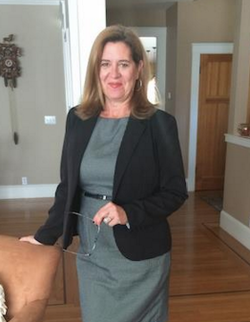|
This morning’s post is about power and voice.
With all the turmoil going on in the US political and economic spheres, it can be easy to slip into the feeling that one has lost power, copious amounts of it in fact, and daily. As headlines blare from all angles, and new voices compete for air space, the tendency to withdraw, protect and rationalize one’s own silence doesn’t come as much of a surprise. Rather than convince people not to silence their voices, or talk about volume, I want to talk today about the underlying experience of personal and social power. How we recognize it, what it means to me personally, and how it plays out in society and conversations. Not just in the national and international landscape, but in our personal, more intimate interactions every day, at home with our family, in meetings with our co-workers, and importantly, with ourselves. I recently asked a colleague in a technical leadership position how he responds when he notices he has fallen silent in a meeting, where he knows, or thinks he should be speaking up. Often, the competition for airspace, for the oxygen in the room can be intense. Top dogging, talking over others, swearing, denigrating, making fun of, these are all ways that people take power in a situation where they feel they need to establish their authority. It’s fascinating and refreshing to meet individuals who enter a new situation with an attitude of relaxed curiosity. I’ve definitely met a few of those in my time and they are such a breath of fresh air! Who do we know who has the self-confidence and emotional maturity to enter into a situation with relaxed curiosity as their first impulse? Not many! But they are a wonder to behold when they do show up. More often, there’s a subtle, or not so subtle competition for power, that plays out in eventually phasing out the diversity of voices in a room. When folks are insecure, eventually their need to reinforce their power dominate the mic, and others fall silent. Once silence has descended, it takes very little to keep that momentum going. The silence itself, the behaviors and emotions of the group will act as a dampening field to others so that once the airwaves are clear, it’s unlikely that a new voice will enter. I’ve experienced this played out in corporate life, family and even in my own head. Little did I know that yesterday a similar scene was playing out on the Senate floor between Senator Elizabeth Warren and Senator Mitch McConnell. Let’s take a closer look at the mechanism of silencing dissent. Suppression of dissent occurs when an individual or group which is more powerful than another tries to directly or indirectly censor, persecute or otherwise oppress the other party, rather than engage with and constructively respond to or accommodate the other party's arguments or viewpoint. When dissent is perceived as a threat, action may be taken to prevent continuing dissent or penalize dissidents. Government or industry[1] may often act in this way. Direct action tries to silence the dissenter via factors or influences in a forthright manner, often coercive. Indirect action tries to silence the dissenter via intervening factors or influences, but not in a forthright manner. Self-censorship occurs when individuals are concerned about risking their employment status, standing in an academic course and/or ability to live without threat. It is a social action. Some dissenters fear direct actions taken against them. Self-censorship makes direct and indirect suppression unnecessary. It’s really this last sentence that is so intriguing to me. As we explore personal power and voice in this series of posts, we’ll think about the internal world, that responds to indications and markers of welcome or rejection. In this play of invitation and exclusion, lies our relationship to power and voice. |
Julie M McDonaldArchives
October 2022
Categories |

